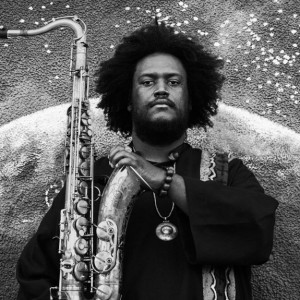There is no way that words could possibly express the depth of my own gratitude for the work of the great master and paradigm-shifter, Ornette Coleman. He opened the music up for all of us by challenging the rules of jazz and innovating new spaces and structures inside of the music. From The Shape of Jazz to Come through his last recording Sound Grammar, his music has always been a profound experience for me, spanning an emotional and intellectual range from the most primal human cry to the most arcane, esoteric formulations. I last heard him in France in 2008, and watched him reduce an audience of three thousand to tears with the abstract beauty of his playing. I saw him play many times over the years, but the sound of his saxophone bouncing off the walls of that medieval amphitheater is something I’ll never forget.
He used a country wail to express the complexities of the city, and the humanity of his saxophone sound was always reaffirming proof that he was following his native instincts – even in the face of decades of scorn and derision by a jazz world so often mired in narrow, depressing orthodoxy. Due to the politics surrounding the music over the last few decades, the bulk of his contribution has not yet been acknowledged and digested and musicians are still learning how to color in the outlines he drew over a half century ago. Maybe that’s a good thing, though, because jazz needs his way of thinking and adventuring, now more than ever. There are some musicians that I simply can’t imagine not being here.
THANK YOU and Rest in Power, Ornette Coleman.
Michael Veal is Professor of Music at Yale University and the author of Fela: The Life and Times of an African Musical Icon; Dub: Soundscapes and Shattered Sounds in Jamaican Reggae; and Tony Allen: The Autobiography of the Master Drummer of Afrobeat.

 Share On Facebook
Share On Facebook Tweet It
Tweet It




